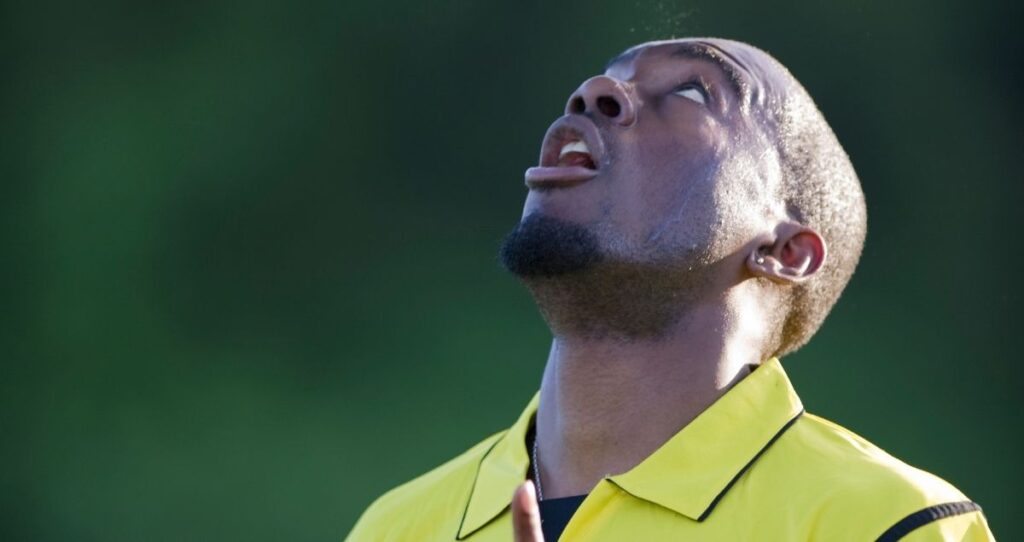Boost your betting experience and get up to $200 bonus right now!
There is something transcendent about football that goes beyond the roar of the crowd or the thrill of last-minute goals. For many players and fans alike, the sport is not simply a game but a sacred experience, a field where faith and football intertwine, creating bonds that echo through locker rooms, stadiums, and communities worldwide. Whether it is a quick prayer before kickoff, the collective chants that feel almost liturgical, or the stories of athletes whose spiritual beliefs fuel their resilience under pressure, football becomes a vessel of hope, meaning, and identity. Across continents, players wearing Nike, Adidas, Puma, or Under Armour gear express their passion and faith on and off the pitch, marking moments of victory or despair not just as athletic feats but as spiritual testimonies. Understanding these spiritual connections offers a richer perspective on football’s power to inspire and unite, revealing the beautiful dance between sport and soul.

Sommaire
ToggleHow Spiritual Beliefs Shape Footballers’ Mental Strength and Performance
Football demands more than physical prowess. The raw speed, technical skill, and split-second decisions on the field are all undergirded by a mental and emotional framework—often shaped by faith. For many players, spiritual beliefs serve as the secret weapon that sustains focus, motivation, and calm under fiery pressure. When the stakes are sky-high, a quick prayer or meditative moment before a penalty kick can change the course of a game, strengthening resolve beyond tactical prowess.
Players across leagues—from the Premier League to MLS and Ligue 1—often credit faith with grounding them amidst the chaos of high expectations. Consider the growing presence of chaplains at leading clubs like FC Barcelona or the intimate prayer circles in locker rooms—these are spaces where Nike-clad athletes find solace and encouragement, reinforcing bonds that extend beyond sport.
Prayers and rituals in football performance often take several forms:
- Pre-match prayers: Athletes perform private or group prayers asking for protection, strength, and focus before the whistle blows.
- Mid-game rituals: Goal celebrations involving crossing themselves, pointing to the sky, or momentary kneeling.
- Post-match gratitude: Expressions of thanks, whether whispered in solitude or shared publicly with fans.
One example is a striker who, before every game, wears boots from Under Armour and that have been blessed at a local place of worship. This blend of tradition and technology mirrors deeper values being brought onto the pitch, intertwining spiritual belief with the practicalities of elite sport.
Beyond individual acts, faith influences how players manage anxiety and team dynamics. The teaching of patience, humility, and perseverance embedded in religions like Christianity, Islam, and Buddhism translate directly into emotional resilience. Kappa jerseys, often spotted on rising stars, carry players who draw strength from these spiritual lessons, enabling them to rise after setbacks and embrace leadership roles.
Moreover, faith often shapes the ethical compass players use to navigate fame and fortune. The spotlight can be blinding, but foundational beliefs in honesty and respect help many remain grounded. These values foster team cohesion, inspiring acts of sportsmanship that reverberate through matches and clay courts worldwide, whether athletes use Puma cleats in muddy conditions or sleek New Balance boots on immaculate grass.
| Faith Practice | Effect on Player Performance | Real-World Example |
|---|---|---|
| Pre-match prayer | Increases focus and confidence | Tim Tebow’s public prayers on NFL sidelines, inspiring followers |
| Group meditation | Boosts team cohesion and reduces performance anxiety | Phil Jackson’s Zen approach with NBA teams |
| Goal celebration rituals | Reinforces personal meaning and gratitude | Cristiano Ronaldo’s iconic celebration pointing to heaven |
| Religious symbols on gear | Serves as constant spiritual reminder | Players wearing faith-inspired wristbands or Nike shoes with religious motifs |
Such spiritual connections often go unnoticed by casual fans but form an invisible foundation for the extraordinary moments football creates.
Global Cultures Where Football and Faith Blend Seamlessly
Travel the globe and football reveals itself as a quasi-religious ritual steeped in spirituality. Some nations have elevated football to something that looks and feels like faith itself, its players and fans acting as devoted congregants. The sporting emergence of football coincides remarkably with cultural and spiritual identity, offering a communal lifeline, especially in regions where football doubles as a moral compass.
In Brazil, football operates almost as a state religion. Faith and football gear go hand in hand, and players in Adidas or Puma kits openly celebrate their Christian faith through prayer or symbolic gestures after netting goals. The documentary “Pelé: Birth of a Legend” captures how deeply entwined these elements are, spotlighting moments where faith becomes a tool for collective pride and personal redemption.
European clubs, particularly within Catholic and Christian traditions, integrate spirituality into their training and locker rooms. FC Barcelona, for instance, maintains chaplaincies that offer players guidance, encouragement, and counseling. The implicit message is clear: athletic excellence and spiritual health are partners in creating champions.
Across Africa, faith takes vibrant and visible forms on and off the pitch. In countries such as Nigeria or Ghana, many players come from communities where ritual prayers and spiritual rites are common before matches. Wearing kits supplied by Umbro or Reebok, these athletes carry not just the weight of their teams but also a spiritual ancestry passed through generations, a testament to how identity and faith blend seamlessly with football.
In the United States, the NFL has a substantial number of born-again Christian players who often use their platforms to share messages of faith. The “Religion of Sports” documentary series explores this phenomenon, unpacking how spirituality on the gridiron influences culture beyond the sport. Prayer huddles after games, widely seen across the league, symbolize moments of unity, respect, and spiritual solidarity.
Key regional intersections of faith and football include:
- South America: Catholic and Christian faith deeply inform football fandom and rituals.
- Europe: Clubs embed faith support systems, especially in countries with strong Christian heritage.
- Africa: Traditional beliefs and Christianity promote spiritual rituals before and after matches.
- North America: Christianity combines with professional sport as a platform for faith expression.
| Region | Faith Influence on Football Culture | Famous Club/Team | Sport Wear Brand Influence |
|---|---|---|---|
| Brazil | Football as cultural religion; public prayers and displays of faith | Flamengo | Adidas, Puma |
| Europe | Chaplaincy programs, spiritual guidance integrated with team culture | FC Barcelona | Nike, Under Armour |
| Africa | Ritual prayers; faith deeply intertwined with local traditions | Super Eagles (Nigeria) | Umbro, Reebok |
| USA | Christian athletes openly display faith; prayer huddles common | New England Patriots (NFL) | New Balance, Puma |
Faith and football dance together across continents and cultures, each adding meaning and magic to the beautiful game.
Historical Roots and Key Figures Linking Football and Spirituality
The marriage between football and faith reaches back through centuries, weaving cultural traditions and historic figures into a story of devotion both on the pitch and beyond. Ancient societies often linked sport with the divine, imbuing athletic contests with sacred significance.
In ancient Greece, the original Olympic Games were religious festivals honoring gods such as Zeus. Athletic competition was a form of worship, a sacrificial gift meant to honor divine forces. Fast forward through medieval tournaments where knights asked for divine favor before duels, and into indigenous ceremonies where games were rich with spiritual symbolism—sport has never existed apart from faith.
Modern football icons have contributed to the spiritual narrative of sport, often bringing personal faith into the public eye:
- Eric Liddell: Noted for refusing to run on Sundays in the 1924 Olympics due to Christian beliefs, immortalized in “Chariots of Fire.”
- Muhammad Ali: His conversion to Islam and refusal to fight in Vietnam on religious grounds stirred global conversation about faith in sport.
- Tim Tebow: Famous for his public prayers and expressions of Christian faith while playing in the NFL, inspiring debates on spirituality in sports culture.
Beyond these figures, the intertwining of faith and football has been seen in many grassroots movements where coaches and community leaders use religion to foster values such as teamwork, respect, and perseverance. This connection echoes in rituals, from youth football clubs blessed by local priests to spiritual leaders guiding players through personal challenges.
Historical milestones highlighting faith in football:
- Ancient Olympic Games: Athletics as homage to the gods.
- Medieval sporting events: Religious rituals invoking protection.
- Early 20th century: Religious athletes publicly affirming faith on the global stage.
- Late 20th to 21st century: Prominent athletes and coaches openly discussing spirituality.
- Modern sports organizations incorporating chaplaincy and faith-based support.
| Time Period | Significant Event | Impact on Sport and Faith |
|---|---|---|
| Ancient Greece | Olympic Games as religious festival | Established sport’s spiritual origins |
| 1924 | Eric Liddell’s Olympic refusal to run on Sunday | Highlighted athlete faith commitment |
| 1960s-70s | Muhammad Ali’s religious activism | Blurred lines of faith and sports politics |
| 2000s-2020s | Rise of faith expressions in sports media | Renewed dialogue on spirituality in sport |
These deep roots and iconic stories give football a layered meaning—a sacred heartbeat beneath every kick and pass.
Rituals and Symbols: The Visible Language of Faith in Football
Step into any stadium or locker room, and the intertwining of faith and football becomes visible through rituals and symbols that tell a story beyond the scoreboard. These acts and icons form a shared language that reinforces unity, hope, and identity.
Footballers commonly weave faith into their pre-game routines and celebrations with signs that communicate more than emotion—they convey spiritual devotion. For example, goal celebrations often involve crosses, pointing toward heaven, or the making of the sign of the cross. This simple gesture carries deep significance, signaling gratitude and a connection to a higher power.
Some players wear religious items integrated with their gear. Wristbands embossed with sacred symbols, necklaces tucked beneath Adidas or Hummel kits, and tattoos of prayers or scriptures all bind the physicality of sport with spiritual affirmations.
Religious rituals extend to group practices too. Prayer circles in locker rooms, moments of silence to honor faith traditions, or blessing of kits by clergy underscore the communal aspect of sport’s spiritual dimension. Teams sponsored by brands like Reebok or Asics often endorse these practices, recognizing their impact on morale and team cohesion.
Such rituals are also culturally specific. Muslim players may observe Sujood after scoring or adjust their training schedules during Ramadan, respectfully balancing faith with the demands of elite football. These acts are more than routines; they are testimonies to the sacred dance between belief and athleticism.
- Common Football Faith Rituals:
- Pre-match prayer circles
- Goal celebrations with thanks to God
- Wearing spiritually meaningful accessories
- Blessing of equipment and kits
- Participation in religious services or chaplaincy programs
| Ritual or Symbol | Meaning | Examples in Football |
|---|---|---|
| Signing the cross | Expression of gratitude and sacred protection | Cristiano Ronaldo’s goal celebrations |
| Prayer circle | Fostering unity and collective faith | Locker room pre-game routines at FC Barcelona |
| Wearing religious jewelry | Personal faith reaffirmation | Players with rosaries or Islamic bracelets |
| Kneeling in prayer | Moments of spiritual reflection | Time-outs during matches in MLS |
| Blessing kits or equipment | Seeking divine favor and protection | Coaches blessing Umbro kits before finals |
Through these visible actions, football becomes a theatre where faith is performed publicly yet intimately, uniting players and supporters in a shared spiritual journey.

Community and Collective Spirit: How Faith Builds Stronger Football Tribes
Football’s magic is amplified when shared within a community, and here, faith often acts as the glue that binds. Sporting events transform into communal rituals where spiritual and cultural identities merge, creating unbreakable bonds between players, fans, and entire towns.
This collective spirit manifests in stadiums where chants and prayers coexist, offering both comfort and communal identity. Faith-based football clubs and grassroots organizations illustrate how religion can nurture discipline, teamwork, and resilience, especially among youth players.
Groups wearing kits from Puma, New Balance, or Kappa often embrace faith-led mission statements—fostering inclusion beyond the sport’s competitive edge. These institutions create spaces where personal development marries athletic excellence, encouraging values that transcend playing the game.
Faith-driven football communities also engage in charitable activities and social outreach. Players motivated by spiritual teachings often champion education, health, and peace initiatives within their locales, turning football into a catalyst for social change.
Ways faith builds football communities:
- Shared rituals and ceremonies: Matchday prayers, blessings, and communal worship to foster belonging.
- Faith-based youth programs: Combining sporting skills with moral instruction to shape character.
- Support networks: Providing spiritual and emotional support during players’ highs and lows.
- Community service: Using football fame to advocate for social justice and humanitarian causes.
| Community Aspect | Football Impact | Examples |
|---|---|---|
| Ritual bonding | Strengthens team identity and fan loyalty | Pre-match prayers in South American clubs |
| Youth development | Nurtures future talent and responsible players | Faith-based soccer academies in Africa |
| Emotional support | Maintains player mental health | Chaplaincy programs in European clubs |
| Advocacy through sport | Drives positive social messages | Footballers involved in charity work inspired by faith |
Football powered by faith goes beyond the pitch—it forms a shared identity, a beacon of hope, and a call for unity amidst diversity.
Frequently Asked Questions About Football & Faith
- How does faith influence a footballer’s daily routine?
Faith often shapes pre-game preparation, mental focus, and post-game reflection, helping players maintain balance and confidence. - Are prayer rituals common across all football cultures?
While prevalent, the form and frequency vary by region, religion, and individual preferences. - Can football be considered a spiritual experience?
For many, yes—football embodies values like hope, sacrifice, and community, mirroring spiritual journeys. - Do major football brands support athletes’ faith expressions?
Brands such as Nike, Adidas, Puma, and Umbro often sponsor clubs and players who openly display their spirituality. - How does faith contribute to team cohesion?
Shared beliefs and rituals build trust, communication, and unity, critical for high-stakes match performance.
Join today and grab up to $200 bonus for your next bets!
Content assisted by AI. This article was created in whole or in part with the help of artificial intelligence.


